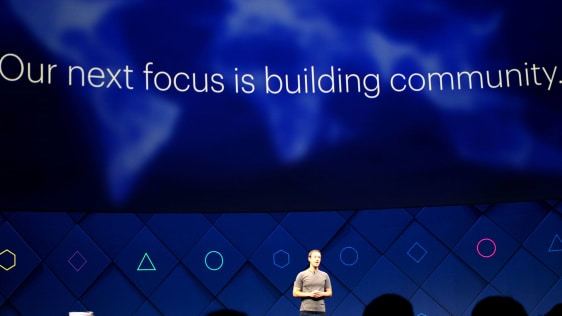These 2 survey questions could determine publishers’ Facebook fates
When Facebook announced last week that it was going to lean on its users to determine the trustworthiness of websites, it was saying, essentially, algorithms aren’t good enough at this yet, and we need you to help us keep fake news off our site. To some, it also looked like Facebook was putting the question of publisher trustworthiness back into the hands of a system that had spread fake news so widely to begin with—a system ripe for manipulation or partisanship.
In his post about the change—which came a few days after Facebook unveiled significant changes to its news feed intended to prioritize posts from friends and family over publishers and brands—CEO Mark Zuckerberg wrote that users would be asked if they’re familiar with specific news sources, and if so, if they consider them trustworthy. Yet, somehow, it seemed certain there would be a bit more to it than that.
Nope. As BuzzFeed reports, the survey is literally just these two questions:
- “Do you recognize the following websites?” (Yes/No)
- “How much do you trust each of these domains?” (Entirely/A lot/Somewhat/Barely/Not at all).
A Facebook spokesperson tells Fast Company that the survey isn’t a voting system that every user will be able to participate in. Rather, the company is randomly selecting users–with a goal of representing the entire Facebook population–and asking them the questions.
The idea there is that even if some who take the survey are ideologically biased, publishers won’t see their ranking diminished because no single group of users can achieve that. The company says that publisher rankings are only impacted if many different groups agree on the trustworthiness (or lack thereof) of a publication.
Either way, given that we’re living in a world where Facebook has so much power over and visibility into what people read, you might think there would be more data to plug into the system that determines whether or not sites can be trusted. But maybe, after the platform’s various efforts to stem fake news, these two questions will somehow be enough. Only time will tell. And with a new round of elections approaching around the world, time is short.
Concerns by the media industry about Facebook’s influence on its business also remain urgent. In a letter today, News Corp. CEO Rupert Murdoch suggested another change to Facebook’s news feed: The company should start paying “trusted” publishers for the privilege of carrying their content, rather than the other way around. “The publishers are obviously enhancing the value and integrity of Facebook through their news and content but are not being adequately rewarded for those services,” Murdoch wrote.
Fast Company , Read Full Story
(14)



